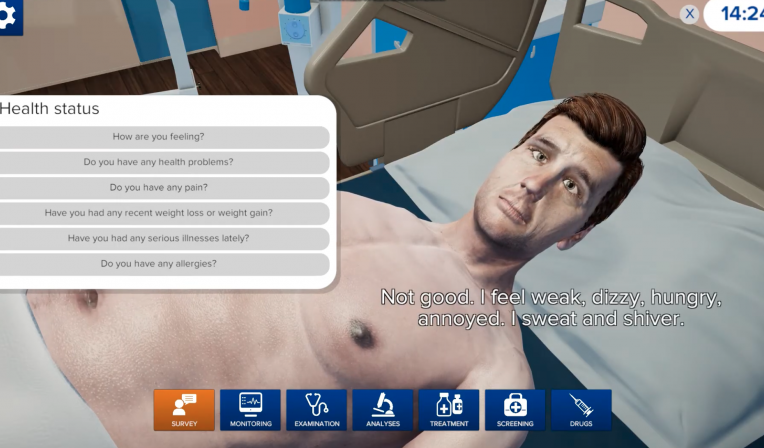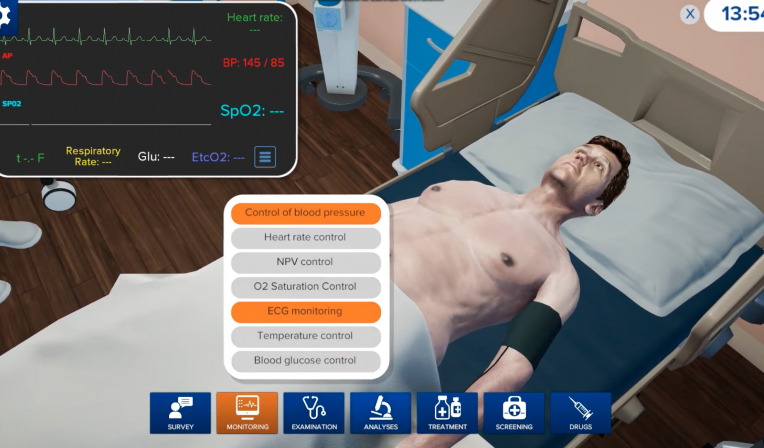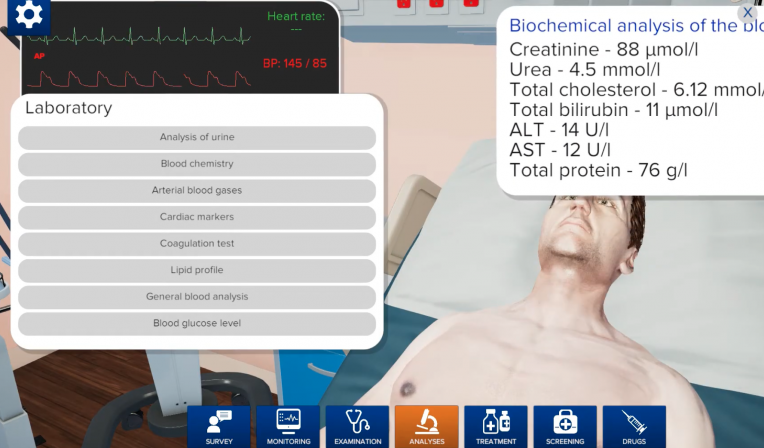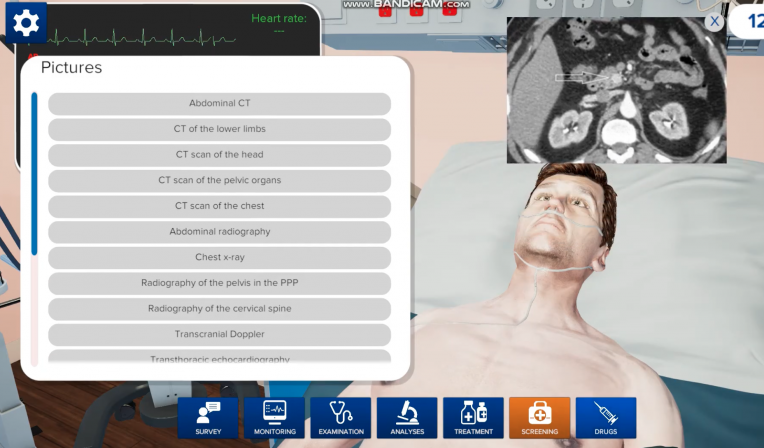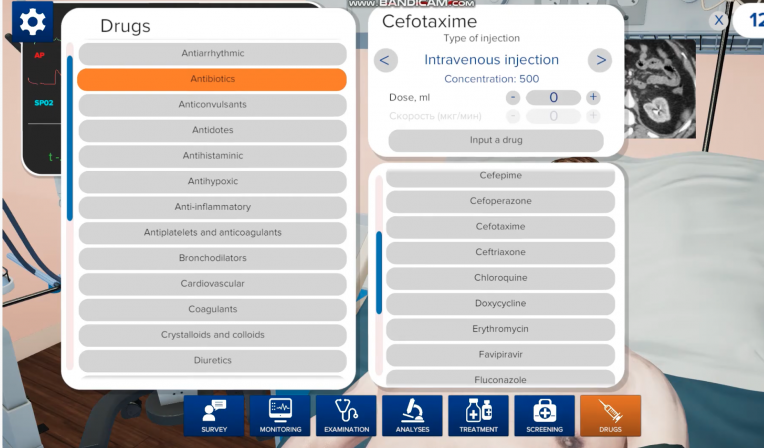
Leonardo VR
Leonardo VR is MedVison's virtual reality patient simulator, allowing interaction and collaborative education (e.g. on a touchscreen table).

A new generation of virtual patients
Leonardo VR is designed to assist in acquiring diagnostic skills, running treatments, practicing clinical decision making, and thus accelerating various skills of a healthcare professional in training.
Download brochure
Leonardo VR is a software where you can interact with a virtual patient. The software has been designed to acquire diagnostic skills, run treatment, practice clinical decision making and thus accelerate various skills of a healthcare professional.

Features
Available as a downloadable App (Windows OS Laptop/PC)
Touch table available with 55" mobile 4K display (optional)
Realistic graphics
Angle adjustment
Easy to move with mobile floor stand

A turn-key solution
Simple to set-up, easy to run... scenario training with so many possibilities!
True-to-life training environment at all stages, i.e. from diagnostics to treatment
Physical examination on all sides by moving the camera where necessary
A wide selection of virtual patients (male and female)
Survey
Realistic doctor-patient communication, dynamic dialogues, quick response by the patient.
Choose from a list of available interview topics
- Health status
- Medication
- Nutrition
- Activity
- Risk factor
- Pain assessment
Tap the button and interact with the patient. In the drop-down list, select a question and get a preset reply from the patient.
Monitoring
Online vital signs monitoring.
Get access to the list of vital signs you can track in real-time: HR, SpO2, Blood Pressure, Temperature and Blood Sugar.
Examination
Open a list of actions for physical examination:
- visual inspection of the skin
- auscultation of the heart and lungs
- percussion
- external signs of pain
- cyanosis
- jaundice
- chest movements
- temperature measuring
- checking the pupil reaction to light
- etc.
Change the body position.
Analyses
Select a test you need to make a diagnosis:
- urinalysis
- blood analysis
- biochemistry
- a complete blood count
- cardiac markers
- sputum analysis
- ECG procedure
- etc.
Treatment
Get access to various methods of treatment and resuscitation: defibrillation, oxygen therapy, catheterization, etc.
Screening
Open a list of patient screening methods:
- ECG
- Radiography
- Ultrasound
- Angiography
- Echocardiography
- Endoscopy
- etc.
Drugs
- An easy to use list of drugs for prescription (all drugs are allocated by category, dosage, and mode of administration)
- A good collection of drugs, i.e. antibiotics, bronchodilators, vitamins, etc
End Of Scenario
A built-in debriefing function: recording all the actions performed and assessing the student’s performance


